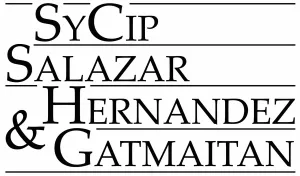There has been a notable increase in the use of electronic signatures for various transactions during the imposition of quarantine restrictions to address the COVID-19 pandemic.
Electronic signatures have been expressly recognized for more than two decades in the Philippines. The Electronic Commerce Act of 2000 (E-Commerce Act) in the Philippines provides recognition for electronic documents and electronic signatures in accordance with its provisions, and expressly states that an "electronic signature on the electronic document shall be equivalent to the signature of a person on a written document".
This law emphasizes the vital role of information and communications technology in nationbuilding, and aims to facilitate domestic and international dealings, transactions, and contracts through the utilization of electronic technology, to recognize the authenticity and reliability of electronic messages or electronic documents related to such activities, and to promote the universal use of electronic transactions in the Government and by the general public.
In 2001, the Supreme Court, in recognition of the aims of the E-Commerce Act, and pursuant to its power to promulgate rules concerning pleading, practice, and procedure in all courts, issued the Rules on Electronic Evidence (REE), which expressly provides that an electronic signature is admissible in evidence as the functional equivalent of the signature of a person on a written document if authenticated in the manner provided in the REE.
A. Court Rulings that support electronically signed documents
Under the REE, an electronic signature is admissible in evidence as the functional equivalent of the signature of a person on a written document provided that it is authenticated in the manner set out in the REE. There is a dearth of cases relating to electronic signatures. The following are some of the notable cases:
1. Bagumbayan-VNP Movement, Inc. v. Commission on Elections (G.R. Nos. 206719, 206784 & 207755, April 10, 2019)
This involved an analysis of what constitutes an electronic signature, which is defined as any distinctive mark, characteristic, and/or sound in electronic form, representing the identity of a person and attached to or logically associated with the electronic data message or electronic document, or any methodology or procedure employed or adopted by a person and executed or adopted by such person, with the intention of authenticating, signing, or approving an electronic data message or electronic document.
In this case, the petitioners questioned the automated election system (AES) for the process of voting, counting of votes, and canvassing the results of the national and local elections. The petitioners argued that the Commission on Elections (COMELEC) violated the automated election laws by removing the requirement of digital signatures as the Election Modernization Act requires that election returns must be digitally signed.
The Supreme Court recognized the broadness of what may be considered a digital signature, which is considered an electronic signature, as the pertinent regulations provide that it may be any distinctive mark or characteristic that represents the identity of a person. Thus, a machine signature of a Precinct Count Optical Scan (PCOS) machine may be considered the functional equivalent of a digital signature as it represents the identity of the individual, such digital signature naturally being created specifically for the person himself or herself inputting the details.
2. Capalla v. Commission on Elections (G.R. Nos. 201112, 201121, 201127 & 201413, June 13, 2012)
In this case, the petitioners assailed the validity and constitutionality of COMELEC resolutions for the purchase of PCOS machines. One of the grounds raised by the petitioners is the supposed palpable infirmities and defects of the PCOS machines in producing digital signatures, which is required under the Election Modernization Act. The Supreme Court recognized that the use of a gadget (i.e., the iButton), together with PIN codes, may be considered as an electronic signature and it recognized that the PCOS machines are capable of producing digital signatures.
3. AES Watch v. Commission on Elections (G.R. No. 246332, December 9, 2020)
In this case, the Supreme Court affirmed its ruling in Capalla, reiterating that the PCOS machines are capable of producing digital signatures. In the case of PCOS machines, algorithms generate these keys and the method of comparing these keys. The private key in the electronic transmission of results and the public key possessed by COMELEC must match to consider the electronic transmission of results as an official election return. The private key is generated when the members of the electoral board use their respective iButtons and input their respective PINs on the voting machines. The Supreme Court again recognized that the use of iButtons and PINs are the functional equivalents of digital signatures.
B. Other examples of where the Government has recognized the use of e-signatures
Many Philippine government agencies have recently issued rules which expressly allow the use of electronic signatures in order to address the remote working arrangements implemented to comply with COVID-19 quarantine measures. Filings with a Philippine government agency typically have to be original documents signed in wet ink.
The Securities and Exchange Commission (SEC), which is the government agency charged with supervision over the corporate sector, capital market participants, and the securities and investment instruments market, now allows companies to execute their Audited Financial Statements using electronic signatures, and to submit them online. However, SEC may still require wet ink signed documents for supervisory or investigative purposes.
The Bureau of Internal Revenue (BIR), which is the government agency charged with the enforcement of tax laws, currently accepts the use of electronic signatures for certain BIR forms and certificates that need to be submitted by a tax withholding agent. An electronic signature is recognized as the functional equivalent of a manual signature on these BIR forms and certificates.
The Revised Standards in Processing Business Permits and Licenses in All Cities and Municipalities, jointly issued by the Department of the Interior and Local Government, Department of Trade and Industry, and Department of Information and Communications Technology, which provides guidelines in processing business permits and licenses in local government units, expressly recognizes the use of electronic signatures for the approval of business permits and licenses.
C. Electronic notarization of documents
There are certain contracts that must appear in a public document (i.e., a document executed or acknowledged before a notary public) to be valid or to bind third persons. The E-Commerce Act provides that the Supreme Court may adopt the use of electronic notarization systems. The REE also provides that "a document electronically notarized in accordance with the rules promulgated by the Supreme Court shall be considered as a public document and proved as a notarial document under the Rules of Court." While the Supreme Court has issued rules for remote notarization, it has yet to issue the pertinent rules for the electronic notarization of documents.
The content of this article is intended to provide a general guide to the subject matter. Specialist advice should be sought about your specific circumstances.


